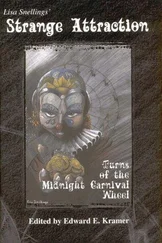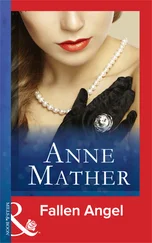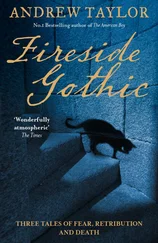‘There, there,’ Angel said, patting his arm. ‘Better out than in.’ Later he heard her calling out in her patrician voice: ‘Taxi! Taxi!’
Eddie remembered little more of the evening. Angel took him home. He could not remember seeing his mother – it was very late, so perhaps she was asleep.
‘Come on,’ she said when they got home. ‘Up the wooden stairs to Bedfordshire.’
In his mind there was a picture of the palm of Angel’s right hand extended towards him with three white tablets in the middle of it.
‘Take these. Otherwise you’re going to feel terrible in the morning.’
He must have managed to swallow them. After that he fell into a dark, silent pit. The first thing that made an impression on him, hours later, was the pain in his head. This was followed, after an immeasurable period of time, by the discovery that his bladder was extremely full. Later still, he realized that if anything the headache was worse. He dozed on, reluctant to leave the peace of the pit and physically unable to cope with the complicated business of getting out of bed.
The next time he woke the light on the other side of the curtains was much brighter, and the sight of it made his headache worse. Someone was shaking him.
‘Eddie. Eddie.’
Shocked, he turned over. As far as he knew Angel had never been in his room before. What would his mother say when she found out?
Daylight poured through the open door. Angel shimmered so brightly that he could not look at her. She was wearing her long white robe and, though her face was immaculately made up, her hair was still confined to its snood. His eyelids began to droop.
‘Eddie,’ Angel called. ‘Eddie, wake up.’
‘… we are somewhat more than our selves in our sleeps, and the slumber of the body seems to be but the waking of the soul.’
Religio Medici, II, 11
Sally had not expected to sleep on Saturday night, the second since Lucy’s disappearance. Part of her was determined to stay awake in case Lucy needed her. When David Byfield rang with the news that Michael was safe, however, tiredness dropped over her like a blanket.
Judith, the policewoman who had been on duty on Friday, and who had relieved Yvonne in the early evening, took advantage of this weakness. She persuaded Sally to go to bed, brought her a cup of cocoa and cajoled her into taking another sleeping tablet.
‘It’ll just send you to sleep,’ Judith said, her Welsh voice rising and falling like a boat on a gentle swell. ‘It’s not one of these long-term ones that knock you out for ages. There’s no point in you flogging yourself to keep awake.’
‘But what if – ?’
‘If there’s any news, I promise I’ll fetch you straightaway.’
Sally took the tablet and drank her cocoa. Judith lingered for a moment, her eyes moving round the room.
‘Do you want something to read? A magazine?’
‘Could you pass me the books over there? The ones on the chest of drawers.’
Judith brought them to her. ‘I’ll look in a little later. See how you’re doing.’
Sally nodded. The door closed behind Judith and she was at last alone. Lucy. Her eyes smarted with tears. She wanted to bang her head against the wall and scream and scream.
Miss Oliphant’s books lay before her on the duvet: unfinished business that would normally have nagged Sally until she had dealt with it. She touched their covers one by one with the fingertips of her right hand. The Bible. The Prayer Book. The Religio Medici. The first two were bound in worn black leather, dry with age, their spines cracking and in places breaking away from the covers. Sally knew without looking that the paper would be so thin that it was almost invisible, and that the type would be so small that even someone with 20:20 vision would have an effort to read it. The Religio Medici had a larger typeface but the book was as battered as the others. All three smelled musty: tired, repulsive and unwashed. Sally shivered, reluctant to open any of them. Each book might be a miniature Pandora’s Box full of unexpected evils.
‘You mustn’t blame yourself,’ David Byfield had told her on the telephone.
‘Then who else do you suggest? God?’
There was a silence at the other end. Then David said dryly, ‘The person who took Lucy, perhaps.’ He had overridden her attempt to interrupt. ‘Concentrate on this: you mustn’t worry about Michael. He’ll sleep it off tonight and be with you tomorrow. You mustn’t blame him, either, or yourself. Do you understand, Sally? It’s most important. Nor must you stop hoping and praying.’
‘I can’t pray.’
‘Of course you can.’
‘Listen,’ Sally began, ‘I don’t like –’
‘Don’t argue. Pray, go to bed and try to sleep. That is the best thing you can do.’
David Byfield’s voice had sounded unexpectedly youthful over the phone. Like Derek Cutter, the old man had been in full pastoral mode, but his technique differed completely from Derek’s: the former’s had made her squirm; David’s infuriated her. Talk about arrogant, Sally thought. What did he know about losing a child? The autocratic, patronizing bastard: who had given him the right to give her orders? She glowed with anger at the memory. Only then did it occur to her that David might have intended to achieve just that effect. He was a clever man, she conceded: an old fool, but still clever.
Her eyelids drooped, she slid down the bed. Endowed with a life of their own, her fingertips continued to stroke the binding of the three books. Audrey Oliphant, she thought sleepily: that’s a strange name. Oliphant sounded like elephant. Had there once been a saint called Audrey? Then, as sudden and as violent as a flash of lightning, the knowledge that Lucy was not there slashed across Sally’s mind. She sat up in bed and screamed. But the sound which came out of her mouth was no more than a whimper. She sank back against the pillows.
The movement had dislodged the books. The corner of a piece of card protruded from the Religio Medici. Sally pulled it out. It was a postcard of the west front of a great church, an old-fashioned colour photograph bleached with age. The building was familiar, but for the moment her mind refused to produce the name. She flipped the card over: Rosington Cathedral. There was writing, too. She squinted at the postmark. April 1963? 1968? It was addressed to ‘Miss A. Oliphant, Tudor Cottage, The Green, Roth, Middlesex’. The name Roth was faintly familiar. Somewhere west of London? Near Heathrow Airport? She tried to decipher the message.
Too many tourists and more like Feb. than April but choral evensong was super. Our mutual friend still remembered. Small world! See you on Tuesday. Love, Amy.
A glimpse of other lives, Sally thought, of a time when Audrey Oliphant had perhaps been happy. Why do we even bother to try?
The card slipped from Sally’s hand, and she sank into sleep. Thanks to the tablets she lay there for what she afterwards discovered was almost seven hours. For much of the time she moved restlessly through the dark phantasmagoria of her dreams, searching for Lucy. This must be hell. When she awoke, she swam up from a great depth, painfully conscious of changing pressure and a desperate need to reach the surface.
Lucy.
Still with her eyes closed, she made an enormous effort and gathered together the pain, the fear and the anger. She made a ball of it in her mind and kneaded it like dough. The ball was streaked with colours: red, brown, green and black, the colours of the emotions. She picked it up and threw it over her shoulder. Then she found the strength to open her eyes.
The bedroom was in darkness, apart from a band of light from the streetlamp slipping between the curtains and the red digits glowing on the clock display. Her pulse was racing, her mouth was dry and her eyelids were swollen and sore.
Читать дальше












